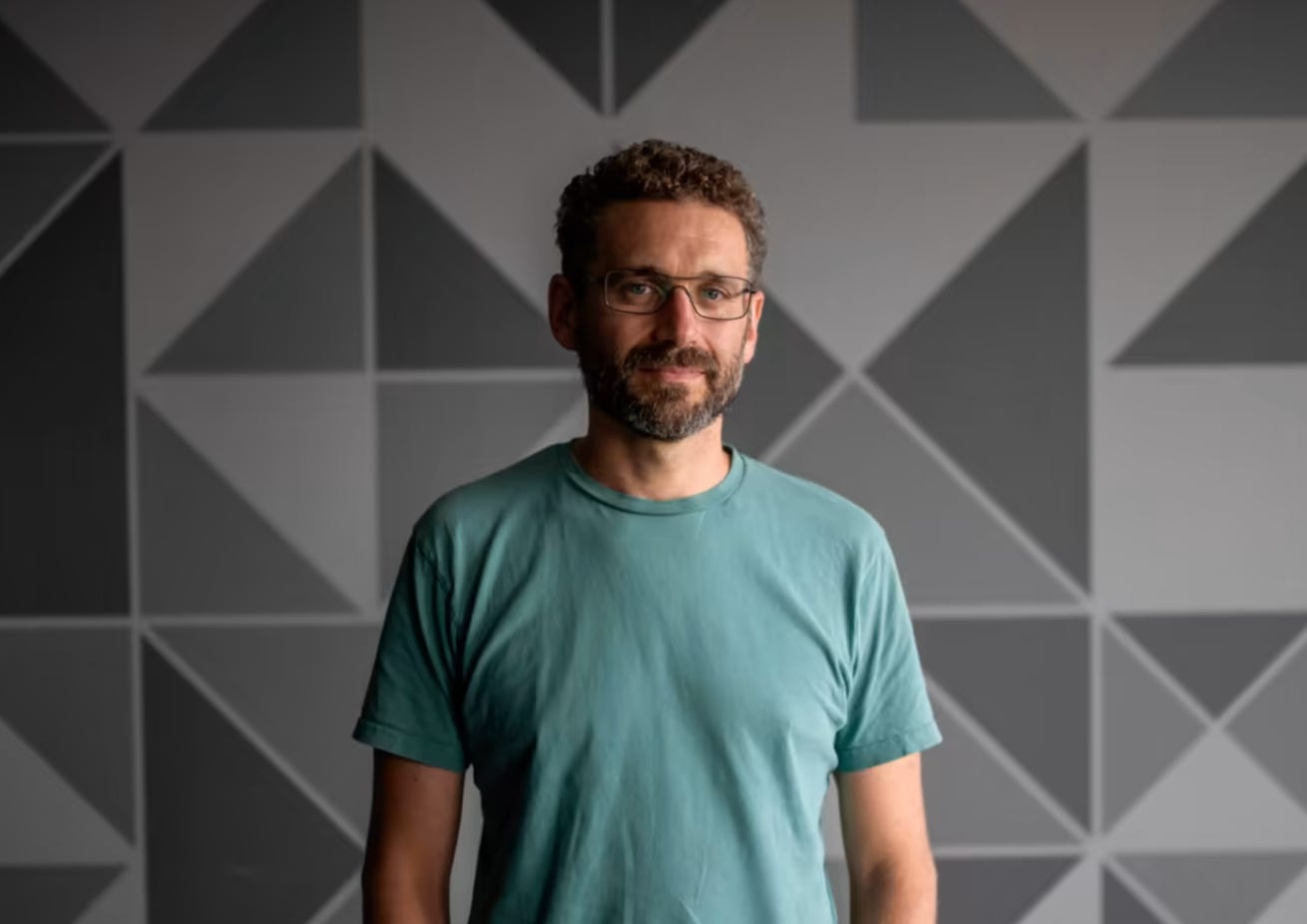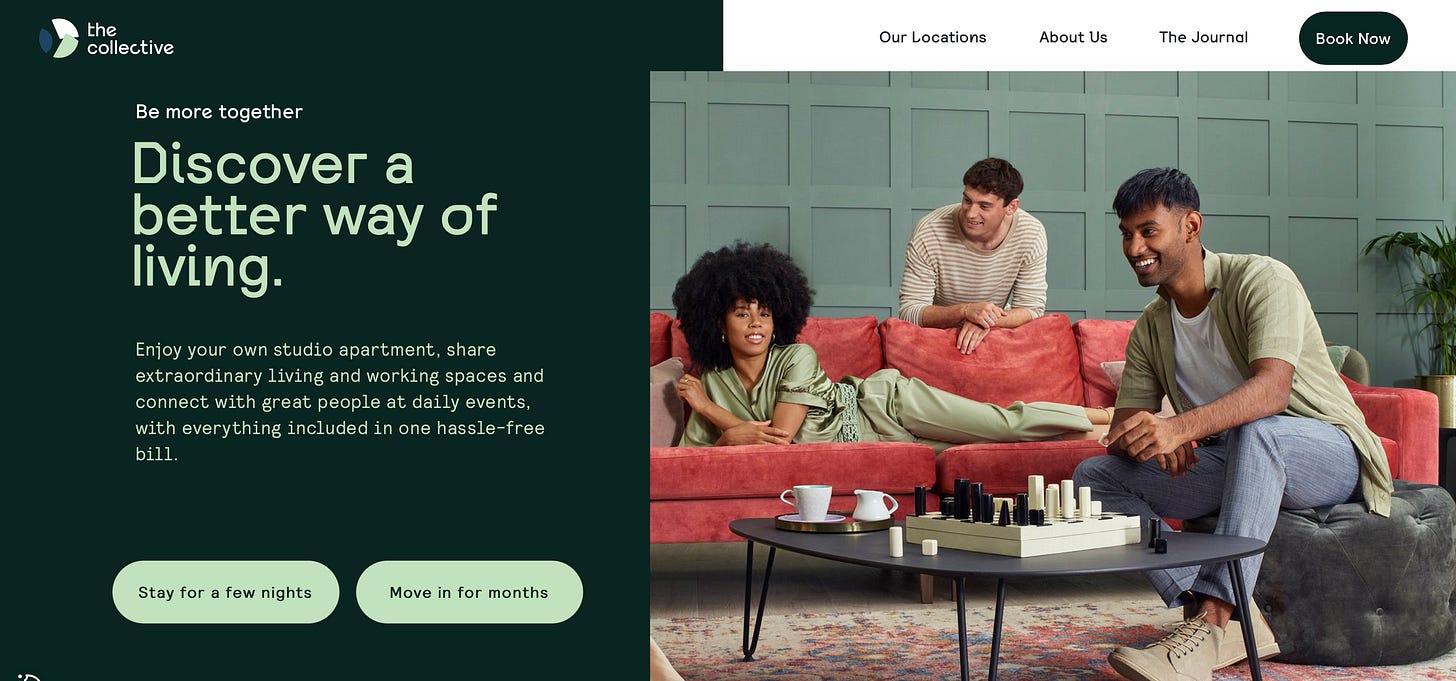Reasons to be cheerful about the UK (we need them) & how remote working could hold a solution to dirty construction
There would be no iPhone without the US govt agencies that pioneered its technologies, now the UK will follow suit. As the tenants flee Docklands, we speculate on clean urban renewal.
If you arrived here via our ‘Windows on net zero culture’ research report, thanks for downloading - we hope it invested some inspiration $$ in your solutions thinking for our future. If you don’t have the report yet, please download and share it around.
Lest we forget why any of this matters, here’s a reminder of the scenes we’ve witnessed this summer:

So, we need a little hope. And for marketing, brand, creative and strategy folk working in the business of communications the 33_Zero newsletter shines a light on the real change we can help bring about in the journey to net zero. Each month we spot a handful of stories that report from the foothills on big shifts coming to the sectors and categories many of us work on every day. We try to translate what they mean for our work.

UK innovation gets a shot in the arm
In her work, Mariana Mazzucato who runs the Institute for Innovation and Public Purpose in London has frequently reminded us of the crucial role public sector bodies play in funding high-risk, early-stage innovations. De-risking for venture capital to come in later and guide commercial players to success. The Internet and SIRI were funded by US body DARPA; GPS by the US Navy; touchscreen by the CIA; innovations in battery storage can be traced to ARPA-E. Without these, no iPhone.
Last month the FT reported that the UK will finally launch a government agency of a similar kind, with a deep innovation mindset and view of success over 10s of years. The Advanced Research and Invention Agency (Aria) will invest in areas from AI to neuroscience. It has an initial budget of £220M p/year which its chief executive, Ilan Gur, says will “magnify and amplify the UK’s excellent existing science and engineering assets as a sort of force multiplier.”
The money will be invested across the UK research ecosystem to boost efforts everywhere from Universities to startups and innovation labs within existing large businesses. Little is yet known about specific focusses within Aria but one area will be the challenge of reducing the energy demands on computing brought about by AI.
Among the figures on the board is a name familiar from government Covid briefings, former UK chief scientific officer Patrick Vallance. Taken together with the UK’s prominence in global life sciences research, we can hope this augurs well for progress in those biotech innovations crucial to finding viable alternatives to meat farming. We know from our own work with business in this area, UK policy has not always been as accommodating (particularly in creating the regulatory environment needed) for these fields as we need to keep pace with US innovation.
Taking ‘bold’ bets: new UK agency prepares to fund breakthrough technologies - Financial Times
The Innovative State - Governments Should Make Markets, Not Just Fix Them by Mariana Mazzucato - Foreign Affairs (from 2014, for reference)
Will a new urban lifestyle be born from the commercial property slump?
The carbon footprint of the construction industry is huge, yet according to research from the Centre for Cities we need 654,000 new homes a year to resolve the UK housing crisis. It’s a typical climate dichotomy where demographic pressures and basic improvements in living standards are in conflict with net zero. The ‘peddling to stand still’ effect.
But remote working culture may hold the solution.
Empty office space in London is at its highest level in over 15 years with an estimated 50 Gherkin skyscrapers’ worth of empty floor space. Landlords face fleeing tenants with no demand to fill their place. While it’s a complex challenge to convert office blocks into residential space - especially those like HSBC Tower in Docklands where the distance from the windows to the central floor point demands a solution to blocking natural light with internal walls - it’s not without precedent.
Before the pandemic the pressure on residential prices was so intense we saw the rise of the co-living phenomenon in which precious square feet were allocated to communal living space. Aspirational brands like The Collective sprung up which, if you were uncharitable, marketed something akin to student halls to young professionals with little hope of enjoying the homes their parents’ generation took for granted.
Now, with property prices on the retreat, for office-dominated neighbourhoods like Canary Wharf the problem is too much space, not too little. Add to this the challenge of converting these big spaces that dictates mixed use - one solution to the internal light challenge in the likes of HSBC Tower is to cluster residential around the outside with the internal space given over to commercial uses ranging from offices to labs, hotels to cinemas - and a different opportunity comes into view.
The lifestyle promise co-living brands were selling to the space-starved could become a better reality, with plenty of space to go around. Imagine Canary Wharf, not as a giant WeWork valuation-fuelled fantasy, but an economy-enhancing life sciences hub where co-living is the norm. Net zero demands creative solutions that find productive outcomes with minimal energy cost. Solutions that repurpose and reuse. Cities have always been good at this: creatively repurposing abandoned space and giving it a new lease of life.
What to Do With a 45-Story Skyscraper and No Tenants - Bloomberg
The housebuilding crisis: The UK’s 4 million missing homes - Centre for Cities
Michael Gove loosens river pollution rules to boost housebuilding - The Times (less good answer to the challenge)
About 33_Zero
33_Zero believes the net zero challenge will reshape culture and consumer behaviour with a force brands are unprepared for. The opportunity is to move in step with these changes as they go from the margin to the mainstream.
33_Zero’s sister organisation, Earthtopia, is one of the largest eco-communities on TikTok with a much bigger audience than Greenpeace or Extinction Rebellion and provides a unique window into the consumer change-makers leading the charge.
We offer brands the opportunity to research with the Earthtopia community and draw on our strategic focus on net zero culture to develop creative solutions to the biggest challenges and opportunities that face them today.
Email jamesp@33seconds.co to find out more.






